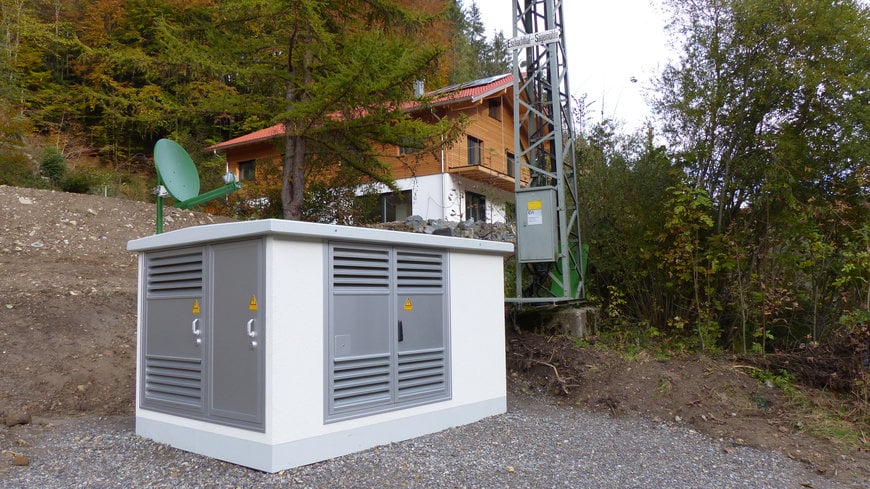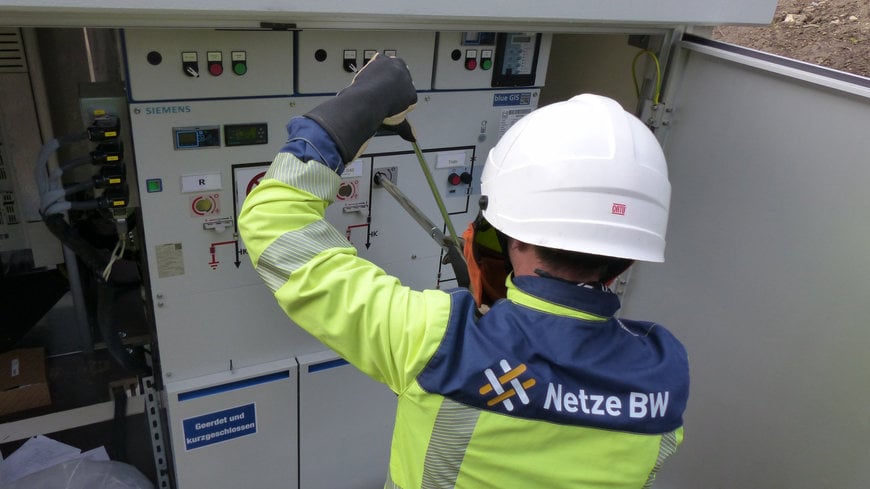Siemens and Netze BW make distribution grids more sustainable and smarter
In conjunction with their ongoing research cooperation, Siemens Smart Infrastructure and Netze BW GmbH, headquartered in Stuttgart, have co-developed an intelligent and environmentally-friendly distribution substation.

The innovative substation, which will connect the medium-voltage distribution grid and the low-voltage local grid in the town of Kreuzthal in the Oberallgäu region, is now being tested under real-life conditions
- Siemens and Netze BW cooperating on multi-year field test
- First distribution substation with innovative blue GIS 24 kV ring main unit live in Oberallgäu
- Fluorine gas-free Clean Air switchgear and bio-ester transformer boost sustainability
For the first time, the new station combines the F-gas-free 24 kilovolt (kV) ring main unit (RMU) from the Siemens blue GIS portfolio with a 630 kilovolt-ampere (kVA) distribution grid transformer. Instead of mineral oil, the Eco Design 2-certified transformer uses fully biodegradable, natural bio-ester oil for insulation. The integrated automation system from the Siemens’ Sicam portfolio is designed for the special requirements of distributed grids and enables reliable monitoring and control of the grid. The innovative substation, which will connect the medium-voltage distribution grid and the low-voltage local grid in the town of Kreuzthal in the Oberallgäu region, is now being tested under real-life conditions.
“Power generation from renewable energy sources is increasingly depending on the weather, posing new challenges especially for medium and low-voltage grids. That’s why we’re working with Siemens on future-proof solutions that will continue to ensure a reliable and yet sustainable power supply for all connected cities and communities,” said Martin Konermann, technical managing director at Netze BW.
The core of the station is a blue GIS 24 kV Ring Main Unit (RMU). It combines the Clean Air insulation medium, a mixture of natural, atmospheric gases, with proven and reliable vacuum switching technology. This eliminates the need for any fluorine-based gas mixtures (F-gas). Integrated into the Netze BW distribution grid the switchgear will be tested live – and join the blue GIS family as the next new member.
“Distribution substations are key components of the distribution grid. Together with Netze BW, we have piloted a one-of-a-kind solution that combines our proven switching technology with environmentally-friendly technologies and digital intelligence. With this solution, we are setting a new standard for smart and eco-friendly energy distribution,” stated Stephan May, CEO of the Distribution Systems Business Unit at Siemens Smart Infrastructure.

The core of the station is a blue GIS 24 kV Ring Main Unit (RMU). It combines the Clean Air insulation medium, a mixture of natural, atmospheric gases, with proven and reliable vacuum switching technology.
Via an integrated remote terminal unit (RTU) and a satellite modem, allowing reliable operation as well as monitoring and control from the main control center, the station is connected to the grid control center of Netze BW. This enables Netze BW to guarantee consistently high power and grid quality even in times of increasingly distributed energy production.
As the largest grid operator for power, gas and water in the EnBW group, Netze BW has 83 locations across Baden-Württemberg, Germany, covering an area of approximately 17,700 km².
www.siemens.com

